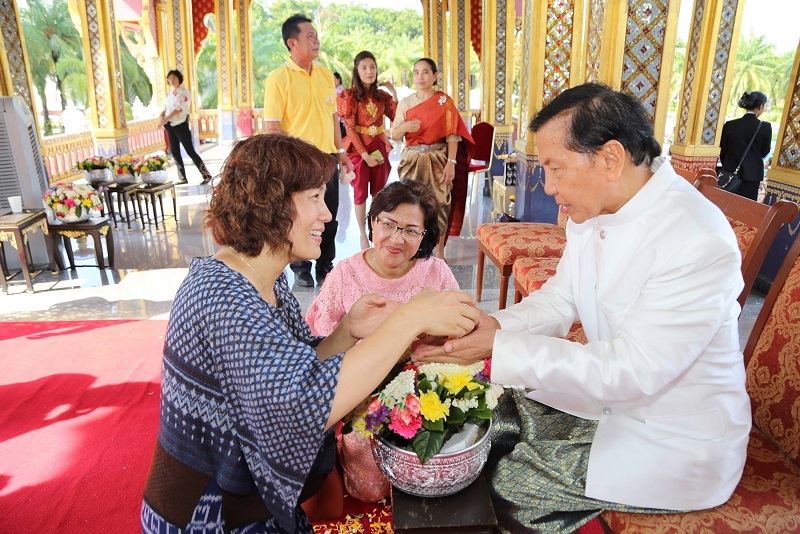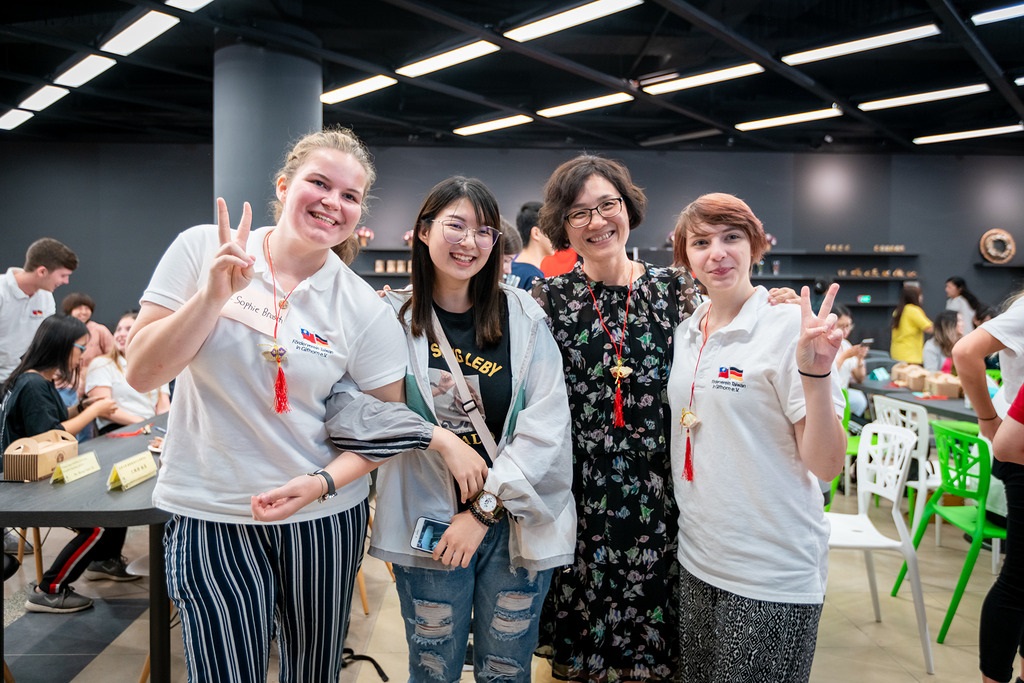Helping Students and Faculty Meet the World

Min-Yu Li participating in a cultural ceremony at Assumption University in Thailand.
“As a Christian institute, Chang Jung Christian University aims to nurture individuals to become caring leaders, respond to global challenges, and uphold ethics, responsibility, integrity, and justice,” Min-Yu Li, director of the university’s Office of Global Engagement said in a recent interview. “We strongly believe these are the values that guide young people’s conduct and lead them to their self-realization.” At Chang Jung Christian University, part of the process of developing those values is to create an international atmosphere on campus. “This helps students and faculty meet the world, brings them opportunities to understand cultures, and helps them adapt to change,” Dr. Li said.
As a 2018-2019 United Board Fellow, Dr. Li took a fresh look at internationalization during her placement at Assumption University in Thailand. Her placement reinforced the importance of creating an internationally friendly campus. “The most important element of an internationally friendly campus is that people are able to communicate with each other,” she said. “A lingua franca, usually English, needs to be adopted as the medium of communication.” Creating a sense of inclusion also means taking a closer look at the campus infrastructure. “Is there praying space for different religious requirements? Will the variety of food choices satisfy different dietary needs? Are there any symbolic constructions that would strengthen the value and culture of the university?” These are some of the practical considerations that help translate goals into action.

Min-Yu Li (second from right) and a CJCU student with two students from Germany.
Internationalizing a campus requires an investment of financial and human resources. Allocating those resources may not be an easy decision for higher education leaders, but doing so ultimately helps prepare their students for professions that require reaching across borders and cultures. As Dr. Li points out, “For students, cross-cultural communication has been considered one of the top competencies to acquire before they leave campus and join the job market.” A welcoming campus facilitates diversity and inclusion – and that, in turn, promotes experiential learning. “Only when people are provided opportunities to encounter different cultures will they be able to investigate cultural differences and enhance their global competence,” Dr. Li said.
“Values are not invented, but discovered,” Dr. Li believes, and in her view, diversity on a university campus will help students, faculty, and administrators learn from each other, avoid ethnocentrism, and develop a holistic worldview. In this way, she sees a connection between a diverse campus and whole person education. “This diversity makes it easier for people in higher education to recognize the dignity and value of life, and to continue to innovate and integrate their academic interests with social and spiritual concerns.”
